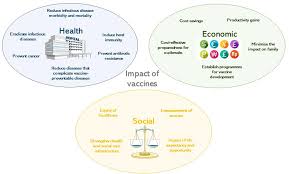The field of medicine is experiencing unprecedented advancements as we move through 2024. Innovations in research, technology, and treatment are reshaping the landscape of healthcare, offering new hope and possibilities for patients worldwide. This article delves into some of the most remarkable medical discoveries and scientific facts of 2024, highlighting how these breakthroughs are revolutionizing medicine and improving lives.
1. Advances in Gene Therapy

1.1 Precision Gene Editing
Gene therapy has made significant strides in recent years, with precision gene editing technologies like CRISPR-Cas9 leading the way. In 2024, researchers have refined these techniques to target and correct genetic mutations with greater accuracy. Notable advancements include:
- CRISPR-Cas9 Enhancements: New developments in CRISPR technology have improved its efficiency and reduced off-target effects, making it a powerful tool for treating genetic disorders. For example, recent studies have demonstrated successful treatments for rare genetic diseases like Sickle Cell Anemia and Cystic Fibrosis.
- Base Editing: A newer method called base editing allows scientists to make precise changes at the level of individual DNA bases. This technique shows promise in correcting mutations associated with various genetic conditions without causing unintended alterations.
1.2 Personalized Gene Therapy
Personalized gene therapy is becoming increasingly sophisticated, tailoring treatments to individual genetic profiles. Advances include:
- Patient-Specific Therapies: Researchers are developing personalized gene therapies based on patients’ unique genetic mutations. This approach enhances the effectiveness of treatments for conditions such as Leukemia and Muscular Dystrophy.
- Gene Editing for Cancer: Innovative gene-editing techniques are being used to modify immune cells to target and destroy cancer cells more effectively. Clinical trials are showing promising results in the treatment of Hematologic Cancers and Solid Tumors.
2. Breakthroughs in Artificial Intelligence (AI) and Machine Learning
2.1 AI-Driven Diagnostics
Artificial Intelligence is transforming medical diagnostics, providing faster and more accurate assessments. Key advancements include:
- AI in Imaging: AI algorithms are being used to analyze medical images, such as MRIs and CT scans, with remarkable precision. For instance, AI systems can now detect early signs of Breast Cancer and Brain Tumors that might be missed by human radiologists.
- Predictive Analytics: Machine learning models are analyzing vast amounts of health data to predict disease risk and outcomes. AI-driven predictive tools are being used to identify patients at high risk for Diabetes, Heart Disease, and Stroke, enabling early intervention and prevention.
2.2 AI in Drug Discovery
AI is revolutionizing drug discovery by accelerating the identification of new therapeutic compounds. Recent developments include:
- Accelerated Drug Development: AI algorithms are predicting the efficacy and safety of new drugs, significantly reducing the time and cost of clinical trials. Companies like DeepMind and BenevolentAI are leading efforts in this area, with promising results in developing treatments for Neurodegenerative Diseases and Infectious Diseases.
- Personalized Medicine: AI is helping to develop personalized treatment plans based on individual genetic profiles and health data, improving the precision of therapies for conditions such as Cancer and Autoimmune Diseases.
3. Innovations in Vaccination and Infectious Disease Control

3.1 Next-Generation Vaccines
The development of next-generation vaccines is advancing rapidly, with several promising innovations:
- mRNA Vaccines: Building on the success of COVID-19 mRNA vaccines, researchers are exploring mRNA technology for other infectious diseases. Recent trials have shown potential for mRNA vaccines against Influenza, HIV, and Tuberculosis.
- Universal Vaccines: Scientists are working on universal vaccines that provide broad protection against multiple strains of a virus. For example, a universal flu vaccine aims to offer long-lasting immunity against various influenza strains.
3.2 Antiviral Therapies
New antiviral therapies are emerging to combat viral infections more effectively:
- Broad-Spectrum Antivirals: Researchers are developing antiviral drugs that target a wide range of viruses, reducing the need for multiple treatments. Drugs like Paxlovid and Molnupiravir are examples of recent advancements in this area.
- Therapeutic Vaccines: Therapeutic vaccines are being explored as treatments for chronic viral infections, such as Hepatitis C and Herpes Simplex Virus. These vaccines aim to stimulate the immune system to control or eliminate the virus from the body.
4. Advances in Regenerative Medicine
4.1 Stem Cell Therapy
Stem cell therapy continues to evolve, offering new possibilities for treating a variety of conditions:
- Regenerative Treatments: Stem cell treatments are being used to repair damaged tissues and organs. Recent successes include Stem Cell Therapy for Heart Disease, Spinal Cord Injuries, and Degenerative Joint Diseases.
- Organoid Development: Scientists are growing miniature organs, or organoids, in the lab to study diseases and test treatments. Organoids derived from stem cells are providing valuable insights into conditions like Cancer and Genetic Disorders.
4.2 3D Bioprinting
3D bioprinting technology is advancing rapidly, enabling the creation of custom tissues and organs:
- Bioprinted Tissues: Researchers are developing 3D-printed tissues for transplantation and research. Recent progress includes bioprinted skin grafts and cartilage for Reconstructive Surgery and Orthopedic Applications.
- Organ Printing: While still in the experimental stage, 3D bioprinting of functional organs, such as kidneys and livers, holds promise for addressing the organ shortage crisis and improving transplant outcomes.
5. Advancements in Personalized Medicine
5.1 Genetic Profiling
Genetic profiling is becoming a standard practice in personalized medicine, providing insights into individual health risks and treatment options:
- Precision Diagnostics: Genetic profiling helps identify genetic predispositions to various diseases, allowing for targeted screening and prevention strategies. For example, profiling can identify individuals at higher risk for Breast Cancer and Colorectal Cancer.
- Tailored Therapies: Personalized medicine uses genetic information to tailor treatments to individual patients, improving efficacy and reducing side effects. This approach is increasingly used in Cancer Therapy, where targeted drugs are designed based on the genetic makeup of tumors.
5.2 Pharmacogenomics
Pharmacogenomics is the study of how genes affect an individual’s response to drugs, leading to more effective and safer treatments:
- Customized Drug Dosing: Pharmacogenomic testing can guide personalized drug dosing, reducing adverse drug reactions and optimizing therapeutic outcomes. This approach is used for medications such as Antidepressants and Anticancer Drugs.
- Drug Development: Researchers are using pharmacogenomic data to develop new drugs that are tailored to specific genetic profiles, enhancing their effectiveness and minimizing side effects.
6. Emerging Trends in Telemedicine

6.1 Remote Patient Monitoring
Telemedicine is transforming healthcare delivery, making it more accessible and convenient:
- Wearable Devices: Wearable health devices, such as smartwatches and fitness trackers, are providing real-time data on patients’ health metrics. These devices monitor vital signs, activity levels, and sleep patterns, enabling continuous health tracking and early detection of potential issues.
- Remote Consultations: Telemedicine platforms are facilitating remote consultations with healthcare professionals, reducing the need for in-person visits. This technology is particularly beneficial for managing chronic conditions, follow-up care, and accessing specialist services.
6.2 Virtual Health Clinics
Virtual health clinics are emerging as a new model of care:
- Online Health Services: Virtual health clinics offer a range of services, including consultations, diagnosis, and treatment, through online platforms. These clinics provide convenient access to healthcare for patients in remote or underserved areas.
- Integrated Care: Virtual health clinics are integrating with electronic health records (EHRs) to provide comprehensive care management, coordinating with primary care providers and specialists to ensure seamless patient care.
Conclusion
The field of medicine is witnessing incredible advancements in 2024, driven by innovations in gene therapy, artificial intelligence, vaccination, regenerative medicine, personalized medicine, and telemedicine. These discoveries are not only enhancing our understanding of diseases and treatments but also improving patient outcomes and quality of life. As these technologies continue to evolve, they hold the promise of transforming healthcare and addressing some of the most pressing medical challenges of our time. Staying informed about these developments and supporting ongoing research and innovation will be crucial in harnessing their full potential and ensuring a healthier future for all


